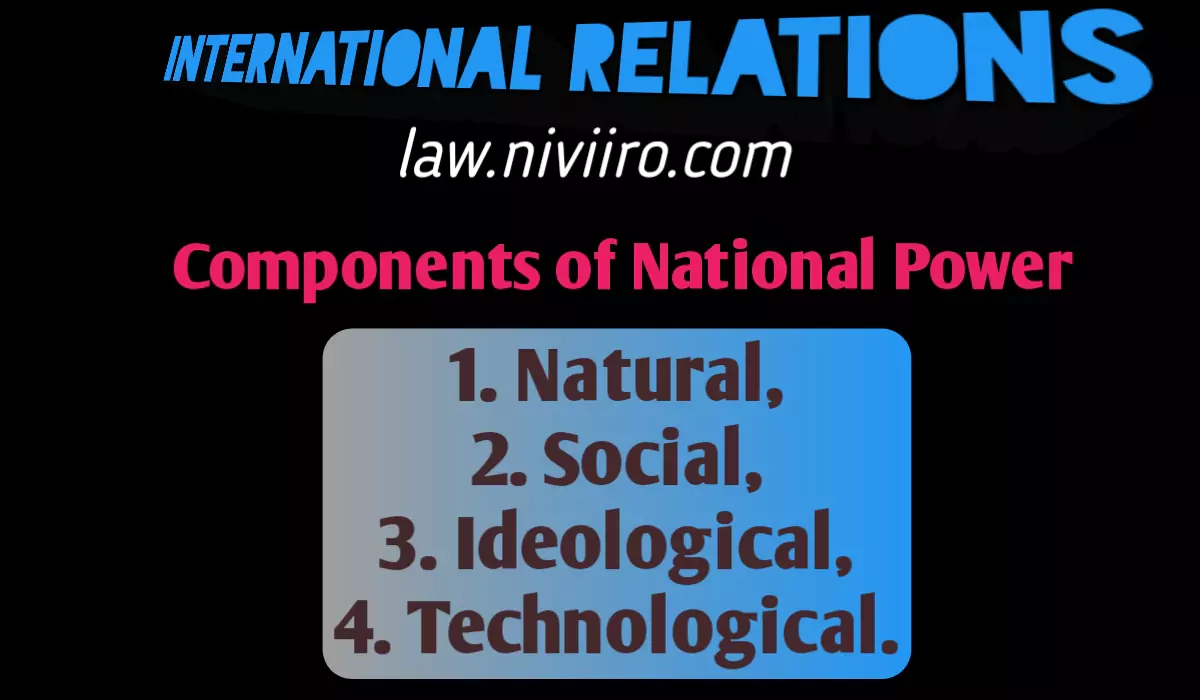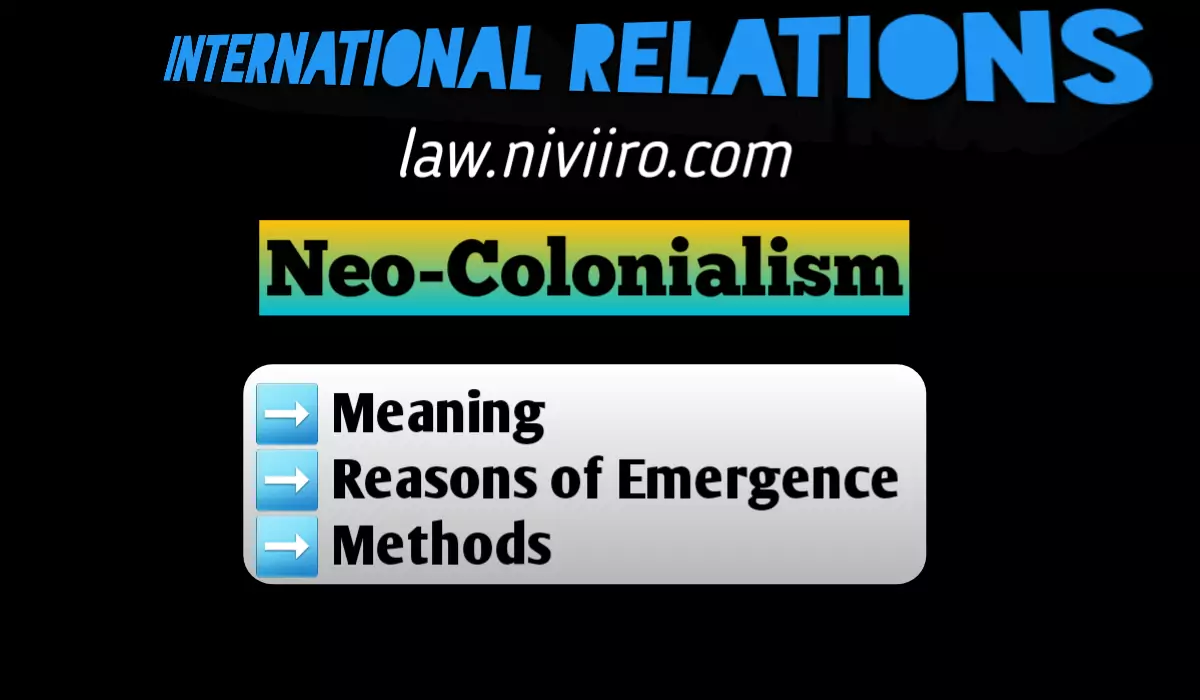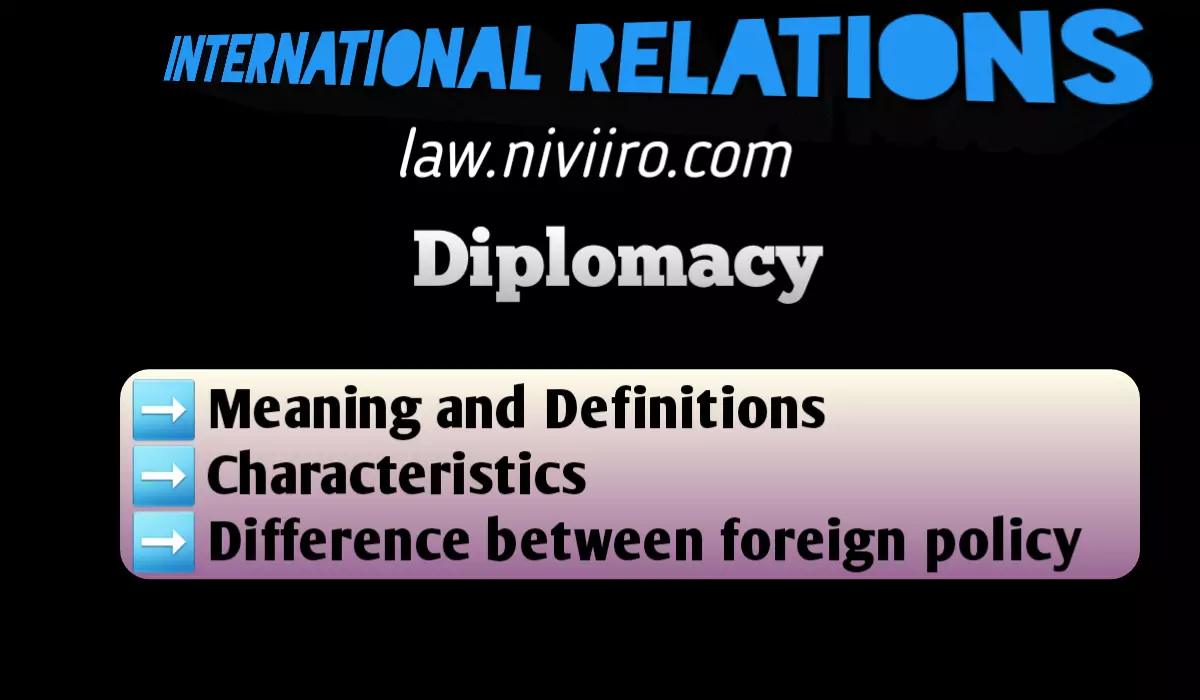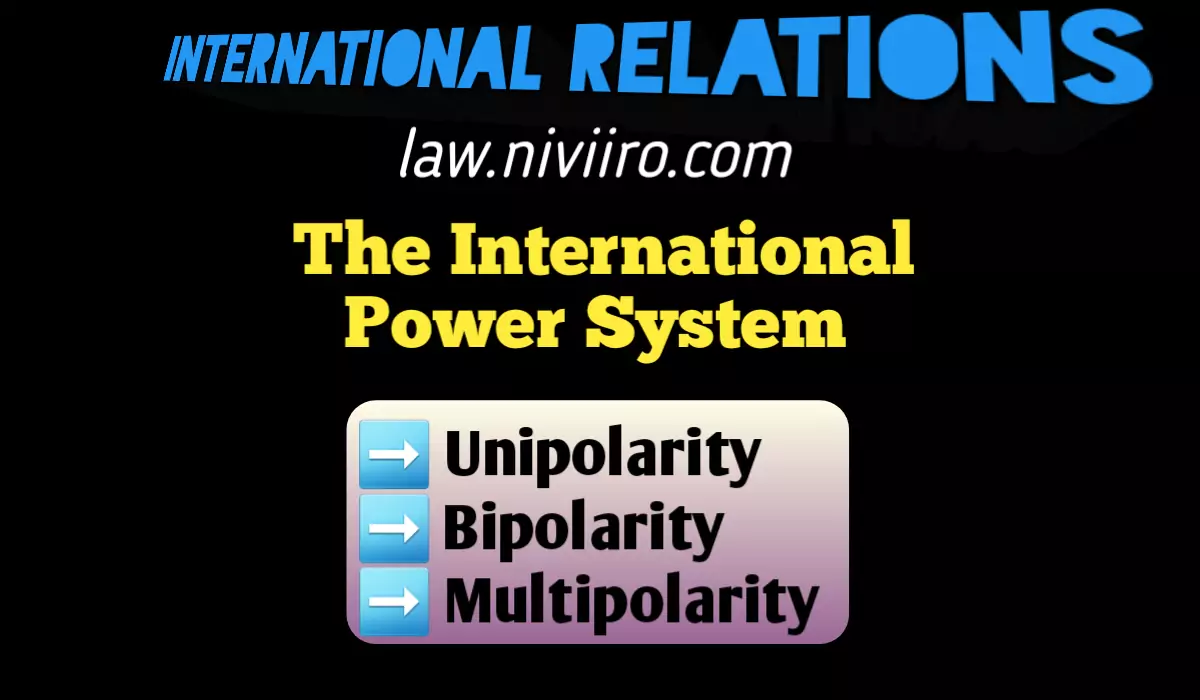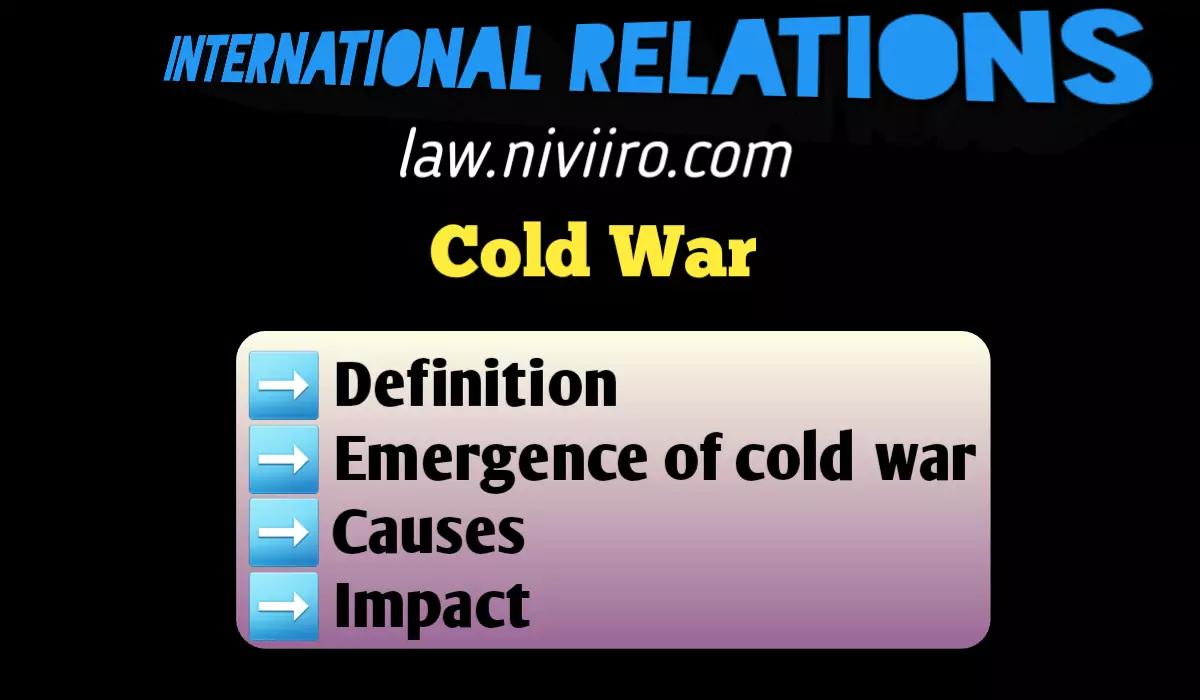There are various elements of national power. Morgenthau has divided the elements into two categories – permanent and temporary. Palmer and Perkins divided the elements into tangible, namely geography, raw-materials and natural resources and intagible, namely morale, ideology and leadership. E.H. Carr has divided them into three categories: military power, economic power and power over opinion. Organski made a distinction between natural determinants ie, geography, resources and population and the social determinants, economic development, political structure and national morale.
The elements of power are not water tight compartments. They are interrelated. Hence, power is indivisible. Population is the strength of nation. But the population becomes weak if the state lacks capital, technical knowhow to exploit the natural resources, to feed, educate and employ the population. Let us divide the elements of power into four categories:
(1) Natural-geography, natural resources and population;
(2) Social-economic development, political structure
(3) Ideational :-ideology and ideas, intelligence and wisdom of leadership; and
(4) Technological development.
(1) Natural Elements | Components of National Power
(A) Geographical factors (Geography)
Geographical factors ultimately affect how states interact with one another. The geographical conditions have an impact on self-sufficiency, wealth, advanced and progressive living, freedom, and the growth of agriculture and industry. Napoleon says, “The foreign policy of a country is determined by its geography”. Geopolitics is a field of study that demonstrates the connections between state behaviour and geography. The Geopoliticians, especially Mackinder and Spykman consider national power to be firmly rooted in the geography of a nation.
Mackinder says, “Who rules Eastern Europe commands Heartland, who rules Heartland rules the whole world.” Spykman likewise says about Rimland, “Who controls Rimland rules Eurasia; who controls Eurasia controls the destiny of the world.”German geopolitician Haushofer propounded the space theory which explains that the British were the masters of sea while Russians were of land, so war becomes inevitable for German race to get the space in Europe.
The most important among geographical factors are size of a country, its climate, its topography and location…
(i) Size
A nation’s power increases with its size of territory. A tiny state cannot grow into a strong one. Despite its small size, England was powerful as long as she possessed colonies. By account of its size, a large state can support a sizable population and also have a sizable amount of natural resources.
Due to the magnitude of their geographical areas, China, India, and the USA are all destined to have a different but equally significant role in world affairs. Various geographical areas create various agricultural and raw material products. Large size, however, refers to useful territory rather than just the amount measured in square miles.
(ii) Climate
A climate is determined by location, altitude, rainfall, and wind. A nation’s power is greatly influenced by its climate. Deserts and other tropical climates are not considered to be zones of power. A country needs a moderate environment for industrialization in order to be a power. A nation that lacks the potential to become highly industrialised can never become a major power. Heat and cold extremes in the climate are detrimental to national strength. The health and vigour of the populace, which contribute to the output of the country, are thought to be best in temperate climates. Climate has a direct impact on people’s health and energy and a direct impact on politics, the economy, natural resources, culture, and religion.
The fertility of the soil is also influenced by the climate. The growth of national power is automatically constrained if rainfall is unpredictable and there are intermittent droughts. The country’s increasing reliance on foreign assistance for food impedes the growth of national strength and the establishment of an independent foreign policy.
(iii) Topography
The topography of a country has a significant impact on its power. Geographical characteristics including mountains, oceans, rivers, forests, and the like are referred to as topographical features. Typographic elements establish natural borders between nations and place restrictions on their organic growth. For foreign expeditions to India, the Himalayas have served as a barrier. The Pyrenees fortify Spain, and the English Channel has protected England’s coastline. The USA is naturally protected by the Atlantic and Pacific Seas.
The Indian Ocean has served India as a sentry. No country has attacked India from the ocean so far. The importance of Egypt in the world affairs is all due to the Suez Canal which links Europe and Asia, reducing the distance by thousands of miles in so far as the sea route is concerned.
(iv) Location
Power largely depends on where a nation is located. The power of a state is determined by the location of its close neighbours. Buffer states frequently act as neutralising forces. States that are very near to major powers are impacted by their neighbor’s foreign policy.
Location affects a nation’s security Being islands, England and Japan have enjoyed greater security. The USA’s isolation from Europe and Asia may last for a very long period.
(B) Natural Resources | Components of National Power
Permanent components of national power are natural resources. According to Palmer and Perkins, natural resources are a gift from nature with a history of usefulness. Petrol, gas, minerals, water, fertility of soil, etc. are examples of natural resources. They also include flora and fauna, waterfalls, and other natural features. Without sufficient natural resources and raw materials, no nation can grow its industrial base.
(C) Population | Components of National Power
The most important aspect that affects a country’s power is its population. Size. Each state’s large population is a source of power, but it can occasionally become a cause of vulnerability. Mussolini acknowledged the significance of population as a source of power when he stated his concerns on the matter, “Be honest with yourself, please. As compared to 90 million Germans and 200 million Slavs, what are 40 million Italians?”
The post-second World War period British power philosophy is linked to the country’s demographic reduction. Churchill was correct when he stated, “If this nation is to remain as a great power that can withstand external influences and maintain its prominent position in the world’s leadership. By all means necessary, we must urge our people to have huge families.”
2. Social elements | Components of National Power
(i) Economic Development
An essential social indication of a nation’s strength is its economic development. A nation’s industrialization is what determines its power. A nation should produce more than it consumes since this increases its power. This surplus can be put to many other uses, such as raising people’s standards of life, which will ultimately inspire loyalty and contentment among the populace. A source of national power is a happy and devoted populace.
Economic development is abundant in the USA, the UK, Russia, Japan, Germany, and other countries. A nation’s ability to persuade is strengthened by the surplus-producing nations. They can also reject other people’s persuasiveness, which is another key tool in the arsenal of power.
(ii) Political Structure (Organisation) | Components of National Power
Foreign policy and national power are related because foreign policy governs international relations. The structure of government has an impact on the issue of foreign policy. Foreign policy ought to be constant and unaffected by alterations in domestic policy. A foreign policy should be uniform, specific, a stable expression of popular will, and at the same time adaptable to shifts in the global environment.
Via diplomacy and propaganda, the government must carry out the foreign policy. It also chooses the size and makeup of a country’s armed forces. Both democratic and totalitarian forms of governance have been very successful in successfully and strongly influencing the behaviour of other states. Nonetheless, in the modern world, a democratically run country is thought to be in a lot stronger position than a totalitarian one since its foreign policy gives more weight to domestic public opinion.
Overall, it is believed that the economies of democratic nations are wealthier than those of authoritarian ones. In a totalitarian regime, even unpopular foreign policies are carried out at the dictator’s whims and fancies and are only made successful through the monopoly of mass persuasion. Propaganda contains a lot of lies intended to hide the truth and stifle it with strong justifications. Nonetheless, democratic countries’ efforts are more widely felt and more firmly grounded in reality than those of other countries. Although a democracy is currently the most powerful country in the world, a totalitarian dictatorship is actually more powerful.
(iii) National Morale
An essential component of national power is national morale. The mental attitude of the country is its morale. It denotes community spirit. It refers to the willingness to make sacrifices for the benefit of other citizens of the nation. Palmer and Perkins say “Morale in a thing of the spirit made up of loyalty, courage, faith, the impulse for the preservation of personality and dignity, sentiments for the known fear and dislike for the unknown and self-interest” The steadfastness with which a nation backs its government’s international policies in times of peace or war is known as national morale.
Public opinion serves as an abstract element without which no government, whether democratic or authoritarian, is able to carry out its goals with complete efficacy. Morale is the sum-total of the individual attributes of persons in a nation in the form of their desire to put the nation’s wellbeing above their own personal welfare. A component of a country’s morale is its willingness to make sacrifices. This willingness especially has a big impact on a country’s military force. In times of national crisis, both civilians and the military services demonstrate their willingness to give their lives.
Even in times of peace, willingness to make sacrifices aids in the development of a nation’s might. In times of emergency, people must pay higher taxes and limit their consumption to support the military or capital formation. When people experience a separation between themselves and the nation in the service of national power, they may be willing to make sacrifices.
Nationwide spirits are never stagnant. Propaganda is just one of many aspects that can be used to generate or boost national morale. Moreover, some things may occur. It might snap when there are more opponents, leaders pass away, or wars are lost.
The people of a nation love their motherland, and are devoted for the integration of it. The people of a nation sacrifice their personal interests to the nation’s welfare with patriotism.
3. Ideational Element | Components of National Power
Ideational element includes (i) ideology and ideas, (ii) intelligence and (iii) wisdom of leadership. (i) Ideology and ideas.
(i) ideology and ideas
Ideas and beliefs play a key role in a nation’s power. “Ideology is a corpus of concepts addressing economic, social, and political values and goals, with positive behaviours, and programmes for achieving these goals,” claim Padelford and Lincoln. An ideology is a set of assumptions about the nature of reality. Inevitably, the ideology will lead to fanaticism and unthinking adherence. Nonetheless, the importance of the individual and his welfare are prioritised more in the concept of a democracy. Both radicalism and blind fealty have been banished from the democratic perspective. It mostly depends on self-aware interest coupled with a sense of obligation.
The word “ideology” can be used to refer to a variety of contemporary ideas. The beliefs a government espouses or supports have a big impact on how much public support it receives both domestically and abroad. Palmer and Perkins’ list of ideologies includes totalitarianism, nationalism, anti-imperialism, communism, fascism, nazism, socialism, liberalism, democracy, and other ideas.
(ii) Intelligence (Espionage) | Components of National Power
Intelligence is another key element of national power. Intelligence is knowledge that improves the wisdom of governmental decisions about international affairs. The action designed to produce knowledge is what is meant by “intelligence,” not the mental faculties of the political leaders. Intelligence creates the kind of knowledge that one state has about other nations, ensuring that neither its cause nor its understandings fail because its statesmen and soldiers plan and act in ignorance. Knowing what other people’s goals are—both for you and for others—gives you real power.
When there is a conflict, intelligence is especially crucial since knowing when, where, and how strong an enemy attack would be in advance might help you win. Similar to this, understanding the enemy’s particular weaknesses is also beneficial. But knowledge is power in terms of peace also. Knowing a state’s strengths and vulnerabilities greatly aids in negotiations with that state since states may foresee which threats and promises may be effective. India is extremely underdeveloped in this area compared to the USA, which has an effective power with a well developed intelligence agency.
(iii) Wisdom of Leadership | Components of National Power
Palmer and Perkins observe that “Without leadership people cannot even constitute a state; without it there can be no well-developed or integrated technology and without it morale is totally useless, if indeed it can exist at all.” Each state develops and formulates its domestic and foreign policies under the guidance of a distinct leader or set of leaders.
Leadership is not limited to political individuals. In addition to its political leaders, a country needs qualified ambassadors abroad, capable generals, navy commanders, competent labour leaders, smart spokesmen of industry, finance, etc. Nonetheless, there is no denying that political leadership can support the growth of leadership at lower societal levels. Leaders inspire the entire nation. The leadership formulates, selects, and directs foreign policy.
Leadership has three aspects: political, diplomatic and military leadership. All these leaderships should be qualitative and imaginative so as to give the right lead at the right time otherwise the result will be a disastrous failure.
4. Technological Development or Progress (Technology) | Components of National Power
Technology influences both the overall dynamics of international relations as well as a state’s power. As “applied science,” technology is described as “the real adoption of new methods and products; it is the triumph of the new over the old.” ye.commastmastmastmastmastmastmas, and. International relations have been significantly impacted by three technological advancements: (i) industrial technology; (ii) communications; and (iii) military technology.
(i) Industrial Technology
Industrial technology boosts a nation’s power through increasing productivity and generating an economic surplus. Also, it can help a nation break its reliance on foreign nations for raw commodities. The issues associated with rubber import were resolved with the development of synthetic rubber as a replacement for raw rubber. After the discovery of nuclear energy, governments may now generate electricity even without access to rivers.
(ii) Communications
The means of conveying information, people, and things have improved as a result of technological developments in the communications field. The use of communication technology has accelerated and greatly increased commercial growth, and it has also changed the diplomatic landscape. Distance as a geographical factor no longer has much of its historical significance. Seas are no longer a barrier to communication, thus any message, news, or image may be sent immediately to any location on earth. As a result, nations that are physically separated by water are no longer completely cut off from one another. With the development of information technology and the widespread usage of computers and communication satellites, distance between countries is no longer an issue.
(iii) Military Technology (Military Force)
The most substantial contribution of technology to state power has been in the military realm. Because it carried its power on the weapon of military technology, Europe remained superior and powerful from the fifteenth through the nineteenth centuries. The art of war has seen numerous improvements in the 20th century.
Related Post | Components of National Power
What are the Components of National Power ?
(1) Natural-geography, natural resources and population;
(2) Social-economic development, political structure
(3) Ideational :-ideology and ideas, intelligence and wisdom of leadership; and
(4) Technological development.
Reference Books | Components of National Power
- J.C. Johari – International Politics
- Prem Arora – International Relations and foreign policy
- H.J. Morgantheau – Politics among Nations
- International Relations in the 21st Century by Pant
- Raymond Aron – Peace and war a theory of International Relations
- An Introduction to International Relations by John Baylis, Steve Smith and Patricia Owens.













